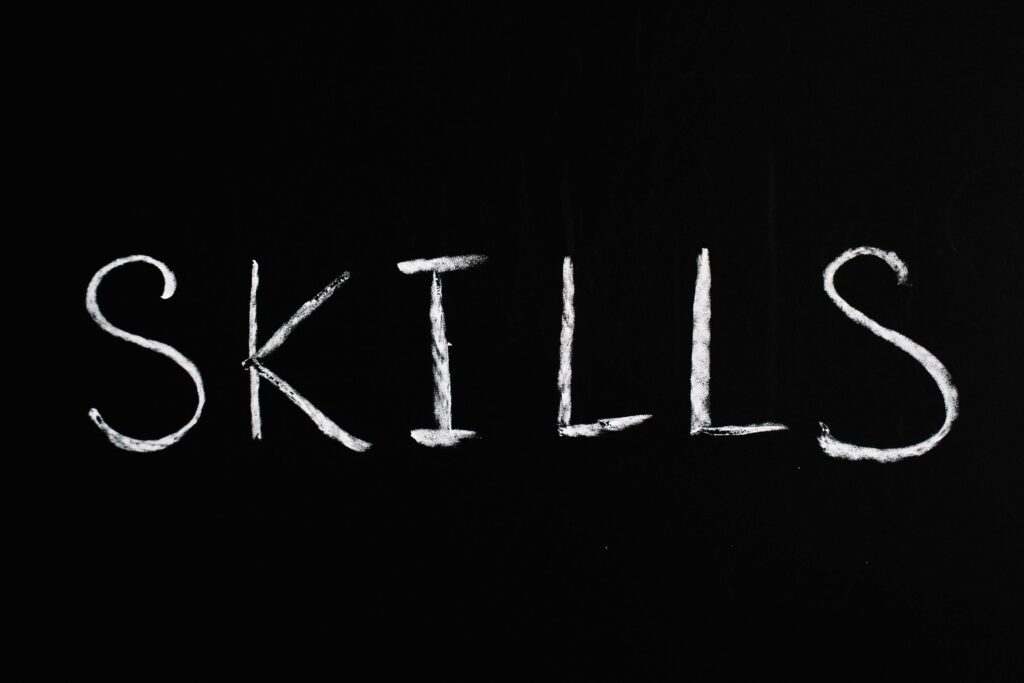10 Best Ways To Invest In Yourself

Look, I’m going to be straight with you: investing in yourself isn’t some fluffy self-help nonsense that sounds good on Instagram but means nothing in real life.
It’s actually one of the smartest financial moves you’ll ever make, and I’m not just saying that because it sounds nice.
Here’s the deal: I’ve spent years studying finance, got my degrees, worked with clients, and you know what I’ve learned?
The people who consistently invest in themselves, their skills, their health, and their mindset are the ones who end up financially ahead. Period.
Think about it this way: you can put money into stocks, bonds, or real estate, and sure, those are solid moves.
But when you invest in yourself, you’re literally increasing your earning potential, your value in the marketplace, and your ability to spot opportunities that other people miss.
That’s a return on investment that compounds over your entire lifetime.
So yeah, this isn’t just about feeling good or being motivated for three days before you forget about it.
This is about making strategic decisions that’ll pay dividends for decades. Let’s get into it.
What Does It Mean To Invest In Yourself?
Okay, so what are we actually talking about here?
Investing in yourself means putting time, money, or effort into something that makes you more valuable, either to yourself or to the world around you.
In finance terms, think of yourself as an asset. And like any asset, you can either appreciate or depreciate over time.
When you invest in yourself, you’re actively working to increase your value.
Here’s what that looks like in practice: Maybe you’re taking a course to learn data analysis.
That’s an investment. Maybe you’re working with a therapist to sort out some anxiety that’s been holding you back professionally. That’s also an investment.
Maybe you’re hitting the gym consistently because you know that better health means more energy for your business. Yep, that counts too.
The beautiful thing about self-investment is that it’s not always about immediate financial returns.
Sometimes you invest in yourself because you want to be happier, healthier, or more skilled at something you care about.
But here’s the kicker, those “non-financial” investments often lead to financial gains anyway.
Funny how that works, right?
The key difference between investing in yourself and other investments?
You can’t lose this one. The stock market might crash.
Real estate values might tank.
But the skills you learn, the health you build, the relationships you forge, those stick with you no matter what happens in the economy.
Why Should You Invest In Yourself?
Let me ask you something: If you had to bet on one thing that would still be valuable in 10, 20, or 30 years,
what would it be? Some hot stock? A piece of property? Or your own abilities and knowledge?
I’m betting on option three every single time.
Here’s why investing in yourself matters from a pure financial perspective:
Your earning potential is your greatest wealth-building tool, especially if you’re under 40.
According to research, the average person will earn somewhere between $1.5 to $2.5 million over their lifetime.
Now, what if you could increase that by just 20% through better skills, networking, and positioning?
That’s an extra $300,000 to $500,000. Show me a mutual fund that guarantees those returns.
But it goes beyond just money. When you invest in yourself, you’re building resilience. You’re creating options.
You’re making yourself less dependent on any single job, company, or income stream.
In today’s economy, that flexibility is worth its weight in gold.
From a psychological standpoint, investing in yourself also builds confidence and self-efficacy.
When you know you have valuable skills and you’re constantly improving, you’re less likely to stay in toxic work environments or bad relationships just because you’re afraid of what’s out there.
You know you can handle whatever comes your way.
And let’s talk about compound growth for a second. When you invest $1,000 in the stock market, it might grow to $2,000 over several years if you’re lucky.
But when you invest $1,000 in learning a high-income skill like copywriting or web development?
That could lead to an extra $20,000, $50,000, or even $100,000+ per year in additional income.
The math isn’t even close.
How To Invest In Yourself In 2026
Alright, so you’re convinced that investing in yourself is important. Great! But where do you actually start?
First things first: you need to audit your life. I know that sounds corporate and boring, but stick with me.
Grab a notebook (or open your notes app, I’m not judging) and honestly assess where you’re at right now.
Look at your career. Are you stuck in the same position you were in three years ago?
Are you learning new things, or are you just going through the motions?
What skills could you develop that would make you more valuable in your field, or help you transition to a better one?
Check your finances. Do you actually know where your money goes each month?
Are you drowning in debt? Do you have an emergency fund?
These aren’t fun questions, but they’re necessary ones.
Evaluate your health. When’s the last time you had a full physical?
Are you sleeping enough? Moving your body? Taking care of your mental health?
Here’s the thing about 2026: We’re living in an era with unprecedented access to information and opportunities.
You can learn practically anything online, often for free or cheap.
Also, you can connect with mentors and peers across the globe. You can start a side hustle with minimal upfront investment.
But (and this is a big but), you’re also competing in a global marketplace.
The person in another country who’s willing to work harder, learn faster, and adapt quicker?
They’re your competition now. That’s not meant to scare you; it’s meant to wake you up to the reality that standing still is actually moving backwards.
So, in 2026, investing in yourself means being strategic. It means identifying skills that are in demand and likely to remain valuable. It means building your personal brand.
Also, It means taking care of your health so you can actually enjoy the success you’re working toward.
The biggest mistake I see people make? They wait for the “perfect time” to invest in themselves.
They’ll start that course once work slows down. They will focus on their health after this busy season.
They’ll work on their side business once they’ve saved up more money.
Newsflash: There’s never a perfect time. You just have to start.
10 Best Ways To Invest In Yourself
Now we’re getting to the good stuff. These aren’t just feel-good suggestions; these are actionable strategies that’ll actually move the needle in your life. I’ve organised them based on both personal experience and financial principles that actually work.
1. Set Goals

I know, I know. You’ve heard this one a million times.
But here’s why most people fail at goal-setting: they set vague, emotional goals that sound nice but have no real plan behind them.
“I want to be successful.” Okay, cool. What does that mean? By when? How will you measure it?
“I want to make more money.” Great! How much more? Through what means? What’s your 90-day action plan?
See the difference?
Here’s how to actually set goals that’ll change your life: Use the SMART framework, but apply it with some financial discipline.
Specific: Your goal needs to be crystal clear. Not “I want to get in shape” but “I want to lose 15 pounds and be able to run a 5K.”
Measurable: You need concrete metrics. If you can’t measure it, you can’t manage it.
Want to start a side hustle? Define what success looks like, $500/month in revenue? 10 clients? Be specific.
Attainable: This is where people go wrong. They either set goals that are way too easy (and don’t push themselves) or absurdly difficult (and get discouraged).
Your goal should make you slightly uncomfortable, but not impossible.
Relevant: Your goal needs to actually matter to you, not just sound impressive to others.
If you don’t genuinely care about achieving it, you won’t put in the work when things get hard.
Time-bound: Give yourself a deadline. Without one, goals are just dreams with no urgency.
Let me give you a real example from my own life.
A few years back, I set a goal: “Within 12 months, I will increase my annual income by $25,000 by developing three new revenue streams.”
That’s specific, measurable, attainable (challenging but possible), relevant (I wanted more financial security), and time bound.
What happened? I ended up exceeding that goal by learning consulting skills, starting a small digital product business, and picking up some strategic freelance work.
But it only happened because I had a clear target and reverse-engineered the steps to get there.
Pro tip: Write your goals down and review them weekly.
Goals that live only in your head have a funny way of morphing into excuses.
2. Acquire New Skills
This is where the magic happens, friends. If you want to know the absolute best ROI investment you can make, it’s learning high-income skills.
Let me break down why this matters from a financial perspective.
The average salary increases from staying at the same job is about 3% per year, barely keeping pace with inflation.
But when you add a valuable new skill to your toolkit? You can potentially increase your income by 20%, 50%, or even 100%+.
So what skills should you learn in 2025? Here’s my take based on market demand and future trends:
Digital Marketing: Businesses will always need to reach customers.
If you can master SEO, content marketing, email marketing, or paid advertising, you’ll never be out of work.
FYI, digital marketers can earn anywhere from $50K to $150K+, depending on expertise.
Data Analysis: Companies are drowning in data but starving for insights.
Learn tools like Excel, SQL, Tableau, or Python for data analysis, and you’ll be incredibly valuable.
Data analysts regularly pull in $70K-$120K.
Copywriting: Persuasive writing isn’t going anywhere. Businesses need sales pages, emails, ads, and content that converts. Good copywriters charge $75-$300+ per hour.
Web Development: Even basic coding skills (HTML, CSS, JavaScript) can open doors. Full-stack developers? They’re making $80K-$150K+ easily.
Video Editing: With video content exploding across every platform, skilled video editors are in high demand. Many charge $50-$150 per hour.
Here’s the beautiful part: you don’t need to go back to school for four years to learn these skills.
Platforms like Coursera, Udemy, Skillshare, and even YouTube offer quality training for a fraction of the cost of traditional education.
My recommendation? Pick one skill that aligns with your interests and has strong market demand.
Commit to learning it for 90 days, just one hour per day. That’s 90 hours of focused learning, which is enough to go from zero to competent in most skills.
Then, immediately start offering that skill (even if you’re not “perfect” yet) to build real-world experience.
The people who invest in learning valuable skills consistently outperform those who don’t, and the income gap only widens over time.
3. Strengthen Your Current Skills

Okay, so you’ve already got some skills. Awesome!
But here’s a hard truth: resting on your laurels is basically career suicide in today’s fast-moving world.
Think about it, whatever you learned five years ago has probably evolved significantly.
New tools have emerged. Best practices have changed. Competitors have gotten better.
If you’re not actively sharpening your skills, you’re actually getting worse relative to everyone else.
Here’s how to stay sharp and keep improving:
Take advanced courses in your field. If you’re a graphic designer, maybe dive deeper into motion graphics or UX design.
If you’re in sales, study advanced negotiation techniques or consultative selling approaches.
Get certified. Professional certifications can boost your credibility and often your earning potential.
Project Management Professional (PMP), Certified Financial Planner (CFP), and Google Analytics certification; these matter to employers and clients.
But here’s something people overlook: soft skills are just as important as hard skills, maybe more so.
You could be the most technically skilled person in your field, but if you can’t communicate effectively, manage your time, resolve conflicts, or lead others, you’ll hit a ceiling pretty quickly.
I’ve seen it happen countless times.
Some soft skills worth developing:
- Communication: Can you explain complex ideas simply? Can you write clear emails? Present confidently?
- Emotional intelligence: Can you read the room? Manage your emotions? Navigate office politics?
- Time management: Can you prioritise ruthlessly? Say no to distractions? Work deeply?
- Leadership: Can you inspire others? Give feedback? Handle difficult conversations?
These skills don’t get outdated. They compound over your entire career.
Real talk: Attend workshops, join mastermind groups, and get coaching if you can afford it.
The investment in continuous improvement pays dividends that most people never see because they stop growing after they land their first “real job.”
4. Attend Seminars And Workshops
I’ll be honest,some seminars are total wastes of time and money.
You know the ones: overhyped events where someone’s trying to sell you their $5,000 course on making money online while they barely cover any actual content.
But the good ones? The good ones can literally change the trajectory of your career.
Here’s what makes a seminar or workshop worth attending:
You’re learning from someone who’s actually done what they’re teaching (not just teaching theory).
The content is actionable and specific, not vague motivation.
There are networking opportunities with other attendees who are on a similar path.
You’re pushed outside your comfort zone and challenged to think differently.
I’ve attended conferences where I’ve met future business partners, landed clients, and learned strategies that added five figures to my income that same year.
That’s not an exaggeration. One conversation, one connection, one insight can literally be worth tens of thousands of dollars.
But here’s the key: You have to be strategic about which events you attend. Don’t just pick the ones with the flashiest marketing. Look for events where:
- The speakers have genuine expertise and track records
- The attendee quality is high (you want to surround yourself with people who are where you want to be)
- The content is advanced enough to actually challenge you
- There’s structured networking time built in
And here’s a pro tip: When you attend these events, don’t be the person sitting in the back taking notes and leaving immediately.
Be active. Ask questions. Introduce yourself to speakers during breaks.
Connect with other attendees. Exchange contact information and actually follow up.
The ROI on a good conference isn’t just the content,it’s the relationships you build.
Some of my best professional connections came from random conversations at seminars where I just walked up and introduced myself.
Also, don’t overlook local meetups and workshops.
Sites like Meetup.com and Eventbrite list tons of free or low-cost events in almost every city.
You’d be surprised how much you can learn and who you can meet without spending a fortune.
5. Get Organized
This one might not sound as sexy as “learn to code” or “start a business,” but trust me,getting organized is one of the highest-ROI investments you can make.
Here’s why: disorganization is costing you money. Like, actual dollars and cents.
Let me paint you a picture. You can’t find an important document, so you spend an hour searching for it (that’s lost productive time).
You miss a bill payment deadline and get hit with a $35 late fee (that’s literal money lost).
Also, you double-book appointments because your calendar’s a mess (that’s damaged professional reputation).
You forget about a subscription you’re not using and waste $15/month for six months (that’s $90 gone).
See how this adds up?
Getting organised isn’t about being neat for the sake of being neat; it’s about efficiency and effectiveness.
Start with your time. Use a calendar system (I don’t care if it’s Google Calendar, a paper planner, or Notion,just pick one and stick with it).
Block out time for your most important activities. Treat appointments with yourself as seriously as appointments with your boss.
Organize your finances. This is huge. Set up a simple system where you can see exactly where your money goes each month.
Use apps like Mint, YNAB (You Need A Budget), or even just a spreadsheet.
Create a budgeb and actually follow it.
Real talk from someone with a finance degree: Most people have no idea where their money actually goes.
They just know they work hard and still feel broke. When you track your spending, you’ll find money leaking out in places you didn’t even realize.
That daily coffee? That’s $1,460 per year. Multiple streaming subscriptions you barely use?
That’s another $500+ annually. Impulse purchases? Don’t even get me started.
Organize your digital life. Your computer desktop shouldn’t look like a hurricane hit it.
Create folder systems. Use cloud storage with clear naming conventions.
Set up email filters so your inbox isn’t a war zone.
The principle here is simple: Every bit of mental energy you spend searching for things, remembering things, or dealing with chaos is energy you’re not spending on income-generating or life-improving activities.
When you’re organized, you’re in control. You’re proactive instead of reactive. You make better decisions because you have better information.
And surprisingly, you’re less stressed, which means you show up better in every area of your life.
6. Drop Off Bad Habits

Let’s get uncomfortable for a minute. What bad habits are costing you money, opportunities, or peace of mind?
I’m not talking about being perfect here. I’m talking about identifying the habits that are genuinely holding you back and doing something about them.
Let’s look at the financial cost of common bad habits:
Smoking: Besides the obvious health issues, if you smoke a pack a day at $8 per pack, that’s $2,920 per year. Over 10 years?
That’s $29,200 that literally went up in smoke. Invested in an index fund instead? That could grow to $40,000+.
Excessive drinking: A couple of drinks out a few times a week can easily run $200-$400 per month. That’s $2,400-$4,800 per year.
Plus the productivity loss from hangovers. Plus, the bad decisions made while intoxicated.
Mindless scrolling: This one’s sneaky because it doesn’t cost money directly, but the opportunity cost is massive.
If you spend three hours a day on social media, that’s 1,095 hours per year.
You could learn multiple new skills, start a side business, or get in incredible shape with that time.
Impulse shopping: Retail therapy feels good in the moment but brutal when you check your bank account. Online shopping makes this worse because it’s too easy. If you spend an extra $200/month on stuff you don’t need, that’s $2,400 per year that could’ve gone toward your goals.
Poor eating habits: Fast food might seem cheap, but it adds up.
Plus the health consequences can cost you way more down the line in medical bills and reduced quality of life.
Here’s how to actually break bad habits (and I’m pulling from behavioral psychology here):
Replace, don’t just remove. If you’re trying to stop mindless TV watching, replace it with reading or learning a skill.
If you’re trying to stop impulse shopping, replace the urge with checking your savings account growth (make saving the reward).
Make the bad habit harder to do. Delete social media apps from your phone.
Unsubscribe from marketing emails. Don’t keep junk food in the house. Add friction.
Track your progress. Use a habit-tracking app or a simple calendar where you mark each day you successfully avoid the habit. Seeing a streak builds momentum.
And here’s the thing,you don’t have to be perfect. You just have to be better.
If you can reduce a bad habit by 50%, that’s still a massive win that’ll compound over time.
7. Read Books
Okay, confession time: I’m a huge nerd when it comes to reading.
But there’s a reason successful people are almost always readers,it’s one of the cheapest and most effective ways to get inside the minds of brilliant people.
Think about it: For $15-$25, you can get years of someone’s knowledge, experience, and insights distilled into a few hundred pages. That’s insane ROI.
Where else can you get that much value for that little money?
But here’s what frustrates me,people say they “don’t have time to read.
” Really? You don’t have 15 minutes before bed? You can’t listen to an audiobook during your commute? Come on.
Let’s be real: You have time for what you prioritize. If you can binge-watch Netflix, you can read a book.
Here’s why reading matters beyond just gaining knowledge:
It exercises your brain. Studies show that reading can improve cognitive function, memory, and even reduce the risk of cognitive decline as you age.
Your brain is like a muscle,use it or lose it.
It reduces stress. Research from the University of Sussex found that reading for just six minutes can reduce stress levels by up to 68%.
That’s better than listening to music or drinking tea.
It improves your communication skills. The more you read, the better your vocabulary, the clearer your writing, and the more articulate you become.
These skills directly impact your earning potential.
So what should you read?
For financial growth: Books like “Rich Dad Poor Dad” by Robert Kiyosaki, “The Millionaire Next Door” by Thomas Stanley, “The Psychology of Money” by Morgan Housel, or “I Will Teach You To Be Rich” by Ramit Sethi.
For personal development: “Atomic Habits” by James Clear, “The 7 Habits of Highly Effective People” by Stephen Covey, “Mindset” by Carol Dweck, or “Can’t Hurt Me” by David Goggins.
Also, for business and career: “Never Split the Difference” by Chris Voss, “The Lean Startup” by Eric Ries, “$100M Offers” by Alex Hormozi, or “Deep Work” by Cal Newport.
My advice? Set a goal to read at least one book per month.
That’s 12 books per year. If you do that consistently, you’ll be in the top 10% of readers in the country. (Seriously, the bar is that low.)
And here’s a hack: Use services like Blinkist to get 15-minute summaries of books.
It’s not a replacement for deep reading, but it’s great for screening which books are worth your full attention.
8. Get Out Of Debt
Alright, this is where we need to have a serious conversation.
If you’re carrying high-interest debt, credit cards, personal loans, whatever, it’s like trying to fill a bucket with a giant hole in the bottom. Doesn’t matter how much you earn; you’re still losing.
Let me give you some numbers that might make you uncomfortable.
The average American has about $6,500 in credit card debt.
At a typical 18% interest rate, if you only make minimum payments, you’ll pay over $13,000 total and take 18+ years to pay it off. That’s insane.
That’s $6,500 that could’ve been invested, used to start a business, or put toward your education.
Instead, it’s going straight to credit card companies. That’s not investing in yourself, that’s making someone else rich.
Here’s how to get out of debt strategically:
The Debt Avalanche Method: List all your debts by interest rate (highest to lowest).
Pay the minimum on everything except the highest-interest debt, which you attack with everything you’ve got.
Once that’s gone, move to the next highest. This saves you the most money mathematically.
The Debt Snowball Method: List debts from smallest balance to largest.
Pay off the smallest first, then roll that payment into the next one.
This gives you quick psychological wins, which can be motivating even though it costs slightly more in interest.
Pick whichever method works for your personality. The best debt repayment plan is the one you’ll actually stick to.
But here’s the real key,you need to increase your income and decrease your expenses simultaneously.
IMO, focusing on just one won’t get you there fast enough.
Cut expenses ruthlessly (at least temporarily). Cancel subscriptions.
Cook at home. Negotiate your bills. Every dollar you save is a dollar that goes toward debt.
Increase income aggressively. Pick up a side hustle. Sell stuff you don’t need. Take on overtime. Use those skills you’ve been learning to freelance.
The extra income should go 100% toward debt, not lifestyle inflation.
And please, please stop using credit cards while you’re in debt.
I know that sounds obvious, but so many people try to pay off debt while simultaneously adding more.
That’s like trying to bail out a sinking boat while someone’s drilling new holes.
Once you’re debt-free? You’ll feel a weight lift that you didn’t even fully realize was there.
Plus, all that money that was going to debt payments can now go toward building wealth.
That’s when life gets really interesting.
9. Get Creative
Here’s something they don’t teach you in finance class: creativity might be your most valuable asset in the modern economy.
Why? Because we’re living in an age where routine tasks are being automated.
If your job can be done by following a script or checklist, it can probably be done by AI or outsourced to someone cheaper.
But creativity? That’s uniquely human, and it’s incredibly valuable.
Let me break down why creativity matters financially:
Creative problem-solving helps you spot opportunities others miss.
While everyone else sees obstacles, you see solutions, and solutions are worth money.
Creativity makes you irreplaceable. Two people might have the same technical skills, but the one who brings fresh ideas and innovative approaches is the one who gets promoted and paid more.
Creative side hustles can generate passive income.
Write a book, create a course, design products, make content,these can all generate income long after the initial work is done.
But here’s what people get wrong about creativity: They think you’re either born creative or you’re not. That’s nonsense. Creativity is a skill you can develop.
Here’s how to become more creative:
Consume diverse content. Read outside your field. Watch documentaries about random topics. Talk to people with different backgrounds. Creativity happens when you connect ideas from different domains.
Practice divergent thinking. When faced with a problem, force yourself to come up with 20 possible solutions (even ridiculous ones). This trains your brain to think beyond the obvious.
Create something regularly. Doesn’t matter if it’s writing, drawing, coding, or building. The act of creating,even if the output isn’t perfect,strengthens your creative muscles.
Embrace constraints. Counterintuitively, limitations often spark creativity. Try giving yourself challenges like “solve this problem with only $100” or “explain this concept in one sentence.”
In your career, look for ways to approach your work creatively. If you’re in customer service, find creative ways to delight customers.
When you’re in accounting, find creative ways to present financial data. If you’re in sales, develop creative pitches.
The people who bring creativity to traditionally “non-creative” fields often stand out dramatically and get rewarded accordingly.
10. Be Open To Opportunities
Last but definitely not least,and honestly, this might be the most important one,you need to develop what I call “opportunity awareness.”
Here’s the truth: opportunities are everywhere. Always. The question is whether you’re paying attention and willing to act when they appear.
I see three types of people:
Type 1: They complain about never getting opportunities while simultaneously turning down or ignoring the ones that come their way because they’re not “perfect.”
Type 2: They’re so heads-down focused on their current path that they don’t even notice opportunities when they appear.
T 3: They’re actively looking for opportunities, open to possibilities, and willing to take calculated risks. These are the people who seem “lucky” but really just have their eyes open.
Be Type 3.
Here’s how to spot and seize opportunities:
Network intentionally. I’m not talking about gross, transactional networking. I mean genuinely connecting with people in your field and adjacent fields. Join professional groups.
Comment thoughtfully on LinkedIn. Attend events. You never know which conversation will lead to your next opportunity.
Say yes to things that scare you a little. If someone offers you a project that’s slightly outside your comfort zone, consider taking it.
If there’s a speaking opportunity that terrifies you, do it anyway. Growth happens outside your comfort zone.
Stay curious. Ask questions like “How can I provide more value?” or “What problems need solving?” or “What’s changing in my industry?” The answers often reveal opportunities.
Be financially prepared. This is huge. Opportunities often require some investment,time, money, or both.
If you’re living paycheck to paycheck with no savings, you can’t take advantage of opportunities when they appear. Build that emergency fund so you have flexibility.
Take calculated risks. Not every opportunity is worth pursuing. Do your due diligence.
But don’t let fear of failure paralyze you into never trying anything. The cost of missed opportunities over a lifetime is far higher than the cost of a few failures.
Here’s a personal example: Early in my career, I had the chance to work on a project that was honestly above my skill level at the time. I could’ve said no and stayed comfortable.
Instead, I said yes and figured it out. That project led to three more projects, a major client relationship, and ultimately added over $40,000 to my income that year. If I’d said no? None of that happens.
Ask yourself regularly: “What opportunities am I not seeing?” and “What could I do with an extra $1,000 to invest in myself right now?” These questions prime your brain to spot possibilities.
Final Thoughts
Let’s be real,everything you’ve read here means nothing if you don’t act on it. Most people will nod along, think “yeah, that makes sense,” and then slip right back into old habits. Don’t be most people.
Pick one thing from this list,just one,and commit to it for 30 days. Maybe it’s reading a book, signing up for that course, or finally tracking your spending. Start small, but start now.
The beauty of investing in yourself is the compounding return. One skill opens doors to more skills; one habit change fuels others.
You’re not just chasing money, you’re building a capable, confident, future-ready you. Your future self is counting on it.








